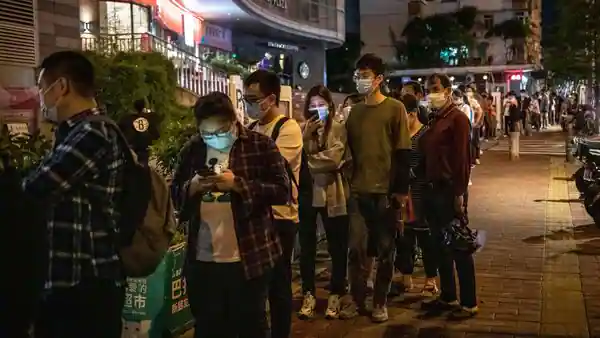Industrial output unexpectedly fell 2.9% in April from a year ago, while retail sales contracted 11.1% in the period, weaker than a projected 6.6% drop. The unemployment rate climbed to 6.1% and the youth jobless rate hit a record. Investors responded by selling everything from Chinese shares to US index futures and oil.
China’s economy has taken an enormous hit from the government’s stringent efforts to keep the virus at bay, with major cities like Shanghai locked down for several weeks and restrictions in many other places cutting into spending, shutting factories and blocking supply chains.
The government has doubled down on its Covid Zero strategy, even though the high transmissibility of the omicron variant puts cities at greater risk of repeatedly locking down and reopening. The zero-tolerance approach has prompted criticism from businesses, fueled public frustration and has put Beijing’s ambitious full-year growth target of around 5.5% further out of reach.
China’s main financial newspapers on Monday published a six-month-old speech by President Xi Jinping on the need to preserve jobs and shore up growth, a sign of greater urgency to bolster the economy. The surge in joblessness is of particular worry to the Communist Party ahead of a twice-a-decade leadership reshuffle later this year, when Xi is expected to secure a precedent-breaking third term.
“They prioritized zero-Covid over economic growth in April, but they want both for the whole year,” said Larry Hu, head of China economics at Macquarie Group. “After all, zero-Covid at the cost of surging unemployment is a hard sell politically, especially in such a year with significant political importance.”
Monday’s data suggests gross domestic product declined 0.68% in April from a year ago, the first contraction since February 2020, according to estimates from Bloomberg Economics. Growth could weaken to below 2% in the second quarter,…

